 The number of older people is constantly increasing, and more and more people suffer from Alzheimer’s disease and other types of dementia. Apparently, seniors who take a daily multivitamin can improve their memory and slow down their cognitive decline, according to a meta-analysis that is published in Journal of Clinical Nutrition. Older people generally have increased need for certain vitamins and minerals because of poor nutrient absorption in the digestive system, impaired enzyme functions, oxidative stress, and regular use of medical drugs that can interact with the nutrients. But how do different vitamins and minerals affect brain health?
The number of older people is constantly increasing, and more and more people suffer from Alzheimer’s disease and other types of dementia. Apparently, seniors who take a daily multivitamin can improve their memory and slow down their cognitive decline, according to a meta-analysis that is published in Journal of Clinical Nutrition. Older people generally have increased need for certain vitamins and minerals because of poor nutrient absorption in the digestive system, impaired enzyme functions, oxidative stress, and regular use of medical drugs that can interact with the nutrients. But how do different vitamins and minerals affect brain health?
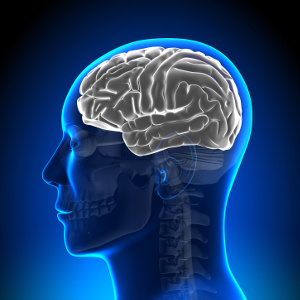 It is commonly known that oily fish and fish oil supplements contain the two omega-3 fatty acids EPA and DHA that are good for the brain. Now, scientists from Singapore have discovered a special omega-3 fatty acid that is of particular importance to brain cells that are surrounded by a protective myeline sheath. The scientists say that their discovery may help prevent brain ageing and lead to the development of new therapies aimed at treating neurological disorders like sclerosis that are associated with myelin damage. Their new study is published in Journal of Clinical Investigation and it appears that fish roe is the best source of these special omega-3 fatty acids that are needed to stimulate the myeline sheath.
It is commonly known that oily fish and fish oil supplements contain the two omega-3 fatty acids EPA and DHA that are good for the brain. Now, scientists from Singapore have discovered a special omega-3 fatty acid that is of particular importance to brain cells that are surrounded by a protective myeline sheath. The scientists say that their discovery may help prevent brain ageing and lead to the development of new therapies aimed at treating neurological disorders like sclerosis that are associated with myelin damage. Their new study is published in Journal of Clinical Investigation and it appears that fish roe is the best source of these special omega-3 fatty acids that are needed to stimulate the myeline sheath.
 Apparently so. According to a new study published in the journal Alzheimer’s and Dementia, older people who take a daily multivitamin supplement for several years are far less likely to develop dementia, Alzheimer’s disease, and other types of cognitive decline. The new study supports earlier research where it has been seen that the different vitamins and minerals increase cerebral blood flow and protect neurons. It pays off to choose high-quality supplements to make sure that the nutrients are properly absorbed in the body.
Apparently so. According to a new study published in the journal Alzheimer’s and Dementia, older people who take a daily multivitamin supplement for several years are far less likely to develop dementia, Alzheimer’s disease, and other types of cognitive decline. The new study supports earlier research where it has been seen that the different vitamins and minerals increase cerebral blood flow and protect neurons. It pays off to choose high-quality supplements to make sure that the nutrients are properly absorbed in the body.
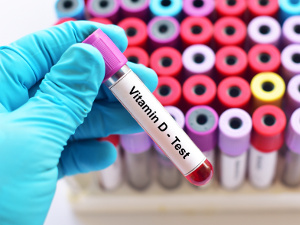 According to a British population study, this seems to be the case. At the same time, it’s alarming that vitamin D deficiency is such a widespread problem and that Alzheimer’s disease and other typers of dementia are on the rise, because there is most likely a connection. How does vitamin D affect brain health, and how much vitamin D do we need to help nerve cells and cells in general function optimally?
According to a British population study, this seems to be the case. At the same time, it’s alarming that vitamin D deficiency is such a widespread problem and that Alzheimer’s disease and other typers of dementia are on the rise, because there is most likely a connection. How does vitamin D affect brain health, and how much vitamin D do we need to help nerve cells and cells in general function optimally?
- and antioxidants like selenium, Q10, and melatonin play a role in prevention and treatment
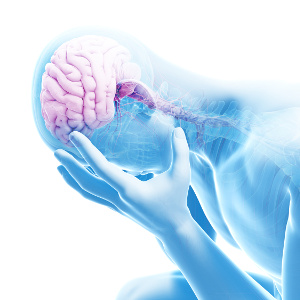 There is a link between depression, dementia and Alzheimer’s disease. Also, it appears that chronic stress contributes to oxidative stress and brain cell damage. In a review article that is published in the science journal Antioxidants, researchers look closer at how oxidative stress affects the brain. They also study how antioxidants can be included in the prevention and treatment of Alzheimer’s disease, and why the most promising results are seen with selenium, Q10, melatonin, vitamin E, turmeric, and polyphenols. With regard to depression, selenium, zinc, vitamin E, turmeric, and saffron have demonstrated the greatest potential.
There is a link between depression, dementia and Alzheimer’s disease. Also, it appears that chronic stress contributes to oxidative stress and brain cell damage. In a review article that is published in the science journal Antioxidants, researchers look closer at how oxidative stress affects the brain. They also study how antioxidants can be included in the prevention and treatment of Alzheimer’s disease, and why the most promising results are seen with selenium, Q10, melatonin, vitamin E, turmeric, and polyphenols. With regard to depression, selenium, zinc, vitamin E, turmeric, and saffron have demonstrated the greatest potential.
 Oily fish and fish oil have a high content of the two omega-3 fatty acids, EPA (eicosapentaenoic acid) and DHA (docosahexaenoic acid), that are important for our brain, nervous system, intelligence, and mental health. Modern diets, however, are to blame for our lack of omega-3. A team of scientists from England has found that supplementation with EPA-rich fish oil for 26 weeks improves mental acuity and reaction time in healthy, young adults. This was not the case with DHA-rich oil fish oil, on the other hand. The scientists were surprised to find that EPA is more important than DHA for these cognitive skills.
Oily fish and fish oil have a high content of the two omega-3 fatty acids, EPA (eicosapentaenoic acid) and DHA (docosahexaenoic acid), that are important for our brain, nervous system, intelligence, and mental health. Modern diets, however, are to blame for our lack of omega-3. A team of scientists from England has found that supplementation with EPA-rich fish oil for 26 weeks improves mental acuity and reaction time in healthy, young adults. This was not the case with DHA-rich oil fish oil, on the other hand. The scientists were surprised to find that EPA is more important than DHA for these cognitive skills.
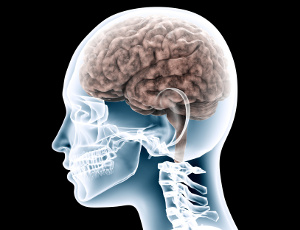 Neuroplasticity refers to the brain ability of brain cells to carry out structural and functional changes that are of vital importance to our development and health. It has been shown that neuroplasticity is impaired in connection with various diseases of the central nervous system, including such conditions as depression and dementia. In a review article that is published in Brain Plasticity, scientists have looked closer at how exercise, the Mediterranean diet, and nutrients like omega-3 and vitamin B12 can improve neuroplasticity by way of a protein called BDNF (brain-derived neurotrophic factor). Selenium is also known to be important for the formation of new brain cells, which can help prevent cognitive decline via other mechanisms.
Neuroplasticity refers to the brain ability of brain cells to carry out structural and functional changes that are of vital importance to our development and health. It has been shown that neuroplasticity is impaired in connection with various diseases of the central nervous system, including such conditions as depression and dementia. In a review article that is published in Brain Plasticity, scientists have looked closer at how exercise, the Mediterranean diet, and nutrients like omega-3 and vitamin B12 can improve neuroplasticity by way of a protein called BDNF (brain-derived neurotrophic factor). Selenium is also known to be important for the formation of new brain cells, which can help prevent cognitive decline via other mechanisms.
 Fish oil contains EPA and DHA, two omega-3 fatty acids with a number of different functions in the brain and nervous system. It appears that middle-aged people who consume more oily fish or who take fish oil supplements have improvements in their brain structure and cognitive skills. This was shown in a study that is published in Neurology. The study results are quite interesting because cognitive decline and dementia are increasing problems that affect millions of people worldwide. The study supports previous research where it was seen that having higher concentrations of DHA in the red blood cell can reduce the risk of Alzheimer’s disease by 50 percent.
Fish oil contains EPA and DHA, two omega-3 fatty acids with a number of different functions in the brain and nervous system. It appears that middle-aged people who consume more oily fish or who take fish oil supplements have improvements in their brain structure and cognitive skills. This was shown in a study that is published in Neurology. The study results are quite interesting because cognitive decline and dementia are increasing problems that affect millions of people worldwide. The study supports previous research where it was seen that having higher concentrations of DHA in the red blood cell can reduce the risk of Alzheimer’s disease by 50 percent.
 Vitamin B3 plays a crucial role in our brain and nervous system, and it is also important for our mental well-being. Studies suggest that lack of vitamin B3 increases the risk of dementia, Alzheimer’s disease, Parkinson’s disease, and schizophrenia. Moreover, epidemiological studies show that diets without vitamin B3 in them tend to cause aggression and an increased rate of homicide. Too little B3 can be caused by dietary shortages and environmental factors, but it also appears that some people have an increased need for the nutrient due to genetic variations and problems with utilizing the vitamin.
Vitamin B3 plays a crucial role in our brain and nervous system, and it is also important for our mental well-being. Studies suggest that lack of vitamin B3 increases the risk of dementia, Alzheimer’s disease, Parkinson’s disease, and schizophrenia. Moreover, epidemiological studies show that diets without vitamin B3 in them tend to cause aggression and an increased rate of homicide. Too little B3 can be caused by dietary shortages and environmental factors, but it also appears that some people have an increased need for the nutrient due to genetic variations and problems with utilizing the vitamin.
 Brain cells (neurons) contain comparatively large concentrations of vitamin C, a nutrient that helps us maintain a healthy nervous system in a number of different ways. Scientists have discovered that lack of vitamin C can affect the brain’s neural signaling. Consequently, a vitamin C deficiency can impair memory and other cognitive skills in seniors. This was demonstrated in a study from Flinders University in Australia. Mild cognitive impairment is widespread among older people and represents an early stage of dementia so it is important to get plenty of vitamin C every day throughout life.
Brain cells (neurons) contain comparatively large concentrations of vitamin C, a nutrient that helps us maintain a healthy nervous system in a number of different ways. Scientists have discovered that lack of vitamin C can affect the brain’s neural signaling. Consequently, a vitamin C deficiency can impair memory and other cognitive skills in seniors. This was demonstrated in a study from Flinders University in Australia. Mild cognitive impairment is widespread among older people and represents an early stage of dementia so it is important to get plenty of vitamin C every day throughout life.
 The number of older people is on the rise, and so is the number of people who suffer from dementia and die as a result of this condition. If you increase your dietary intake of magnesium, however, and get more than what is officially recommended, it helps keep your brain sharp and prevents dementia, according to a large population study that is published in European Journal of Nutrition. Many older people don’t eat enough and even take different kinds of medicine that block the body’s uptake and utilization of magnesium. So, how does magnesium affect the brain and nervous system? And how much do we need to stay mentally alert throughout life? Those are the questions.
The number of older people is on the rise, and so is the number of people who suffer from dementia and die as a result of this condition. If you increase your dietary intake of magnesium, however, and get more than what is officially recommended, it helps keep your brain sharp and prevents dementia, according to a large population study that is published in European Journal of Nutrition. Many older people don’t eat enough and even take different kinds of medicine that block the body’s uptake and utilization of magnesium. So, how does magnesium affect the brain and nervous system? And how much do we need to stay mentally alert throughout life? Those are the questions.
 Ageing is characterized by increased physical and mental frailty that reduces one’s ability to deal with various external stress factors. Omega-3 fatty acids that are found in oily fish and fish oil supplements are believed to prevent frailty through their immune-regulating and anti-inflammatory properties, but studies have shown conflicting results. Nonetheless, daily intake of two grams of omega-3 appears to reduce frailty. According to a large population study that is published in Frontiers in Nutrition, it is also important to include moderate quantities of high-quality omega-6.
Ageing is characterized by increased physical and mental frailty that reduces one’s ability to deal with various external stress factors. Omega-3 fatty acids that are found in oily fish and fish oil supplements are believed to prevent frailty through their immune-regulating and anti-inflammatory properties, but studies have shown conflicting results. Nonetheless, daily intake of two grams of omega-3 appears to reduce frailty. According to a large population study that is published in Frontiers in Nutrition, it is also important to include moderate quantities of high-quality omega-6.
- by way of different mechanisms
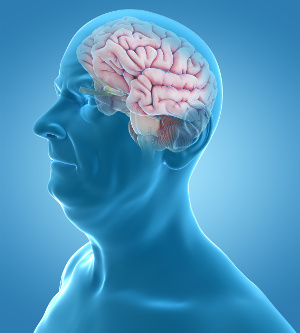 There seems to be a relation between ageing, Alzheimer’s disease, and the widespread problems with selenium deficiency. According to a new study that is published in Antioxidants, scientist have revealed how different selenium-containing proteins can affect pathological processes in the brain that are known to cause Alzheimer’s disease. They believe selenium may have therapeutical potential in the treatment of this disease, which is one of the greatest disease burdens and a leading cause of death among seniors. Selenium also helps in the prevention of the disease, which is extremely important because it is often difficult to diagnose Alzheimer’s disease in its early stages.
There seems to be a relation between ageing, Alzheimer’s disease, and the widespread problems with selenium deficiency. According to a new study that is published in Antioxidants, scientist have revealed how different selenium-containing proteins can affect pathological processes in the brain that are known to cause Alzheimer’s disease. They believe selenium may have therapeutical potential in the treatment of this disease, which is one of the greatest disease burdens and a leading cause of death among seniors. Selenium also helps in the prevention of the disease, which is extremely important because it is often difficult to diagnose Alzheimer’s disease in its early stages.
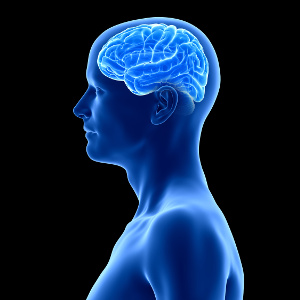 Glioblastoma is a the most common type of brain tumor and is very aggressive. Existing therapies are not all that effective and most people die within a few years after being diagnosed with the disease. It is essential to have more focus on prevention, and diet plays a major role. According to a Chinese population study, vitamins B1, B2, B3, and B9 (folic acid) are associated with a reduced risk of developing glioblastoma. The scientists mention the different B vitamins and their role in brain health and cancer prevention and stress the importance of knowing about the factors that inhibit the body’s uptake and utilization of these vitamins.
Glioblastoma is a the most common type of brain tumor and is very aggressive. Existing therapies are not all that effective and most people die within a few years after being diagnosed with the disease. It is essential to have more focus on prevention, and diet plays a major role. According to a Chinese population study, vitamins B1, B2, B3, and B9 (folic acid) are associated with a reduced risk of developing glioblastoma. The scientists mention the different B vitamins and their role in brain health and cancer prevention and stress the importance of knowing about the factors that inhibit the body’s uptake and utilization of these vitamins.
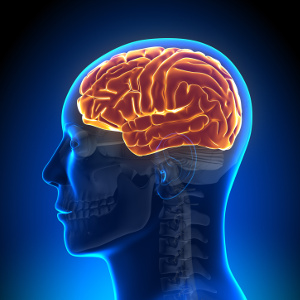 Alzheimer’s is a growing health burden worldwide, and diet appears to play a major role. A large meta-analysis published in Frontiers in Aging Neuroscience recently revealed that patients with Alzheimer’s disease have lower levels of magnesium in their blood and cerebrospinal fluid compared to healthy controls. This suggests that being magnesium-deficient may be a risk factor in Alzheimer’s disease.
Alzheimer’s is a growing health burden worldwide, and diet appears to play a major role. A large meta-analysis published in Frontiers in Aging Neuroscience recently revealed that patients with Alzheimer’s disease have lower levels of magnesium in their blood and cerebrospinal fluid compared to healthy controls. This suggests that being magnesium-deficient may be a risk factor in Alzheimer’s disease.
- throughout life
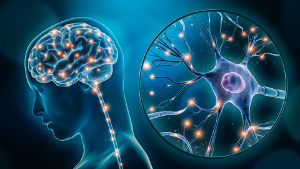 Neurologists agree that the brain’s neurons constantly change in relation to stimuli from the inside and outside environment. That is how we learn new skills and develop our memory. The brain’s ability to adapt and change is called neuroplasticity and doctors have suspected for a long time that it takes place in the synapses. A team of scientists from the University of Freiburg in Germany has discovered that a vitamin A-like compound affects the neurons and their ability to adapt to structure and function. The scientists hope that their discovery can contribute to the development of new therapies for treating brain disorders. Earlier studies have shown that omega-3 fatty acids, vitamin D, and lifestyle in general also affect the brain’s neuroplasticity and development.
Neurologists agree that the brain’s neurons constantly change in relation to stimuli from the inside and outside environment. That is how we learn new skills and develop our memory. The brain’s ability to adapt and change is called neuroplasticity and doctors have suspected for a long time that it takes place in the synapses. A team of scientists from the University of Freiburg in Germany has discovered that a vitamin A-like compound affects the neurons and their ability to adapt to structure and function. The scientists hope that their discovery can contribute to the development of new therapies for treating brain disorders. Earlier studies have shown that omega-3 fatty acids, vitamin D, and lifestyle in general also affect the brain’s neuroplasticity and development.
 Schizophrenia is known to impair quality of life and reduce life expectancy. Diet, lack of nutrients, and digestion are all important for the progression of the disease, according to an Iranian study of schizophrenics who were given supplements of vitamin D plus lactic acid bacteria and bifidobacteria. The study is published in Neuropsychopharmacology Reports and reveals that these supplements were able to significantly improve the cognitive skills of the patients. The researchers also mention that these supplements have a role in regulating the body’s production of dopamine, controlling inflammatory processes, and controlling the gut-brain-axis that is important for the communication between the gut and the brain.
Schizophrenia is known to impair quality of life and reduce life expectancy. Diet, lack of nutrients, and digestion are all important for the progression of the disease, according to an Iranian study of schizophrenics who were given supplements of vitamin D plus lactic acid bacteria and bifidobacteria. The study is published in Neuropsychopharmacology Reports and reveals that these supplements were able to significantly improve the cognitive skills of the patients. The researchers also mention that these supplements have a role in regulating the body’s production of dopamine, controlling inflammatory processes, and controlling the gut-brain-axis that is important for the communication between the gut and the brain.
 During pregnancy, vitamin D plays an important role in the bone development of the unborn child, in the brain, and in other functions. Maternal lack of vitamin D during pregnancy may therefore have serious consequences for the fetus and its development. This also goes for the development of neurons in the dopamine-producing area of the brain, which can most likely result in dysfunctions of the dopamine balance, a problem that is seen in young individuals and adults with schizophrenia. This was demonstrated in a new study that is published in Journal of Neurochemistry. The study supports an earlier review article where it was seen that early stages of psychotic disorders like schizophrenia are linked to severe deficiencies of vitamin D and other nutrients with vital importance to brain health, especially during pregnancy.
During pregnancy, vitamin D plays an important role in the bone development of the unborn child, in the brain, and in other functions. Maternal lack of vitamin D during pregnancy may therefore have serious consequences for the fetus and its development. This also goes for the development of neurons in the dopamine-producing area of the brain, which can most likely result in dysfunctions of the dopamine balance, a problem that is seen in young individuals and adults with schizophrenia. This was demonstrated in a new study that is published in Journal of Neurochemistry. The study supports an earlier review article where it was seen that early stages of psychotic disorders like schizophrenia are linked to severe deficiencies of vitamin D and other nutrients with vital importance to brain health, especially during pregnancy.
 Dementia is on the rise across the globe but according to a study from University of South Australia, vitamin D may have the potential to pull the brake on the degenerative processes. The scientists have observed a direct link between the widespread problems with vitamin D deficiency and the increasing rate of dementia. At the same time, they assume that optimizing people’s vitamin D status in the blood may help prevent millions of dementia cases worldwide. The need for vitamin D varies from person to person, it should be noted, and many people have a higher need for the vitamin than what is officially recommended.
Dementia is on the rise across the globe but according to a study from University of South Australia, vitamin D may have the potential to pull the brake on the degenerative processes. The scientists have observed a direct link between the widespread problems with vitamin D deficiency and the increasing rate of dementia. At the same time, they assume that optimizing people’s vitamin D status in the blood may help prevent millions of dementia cases worldwide. The need for vitamin D varies from person to person, it should be noted, and many people have a higher need for the vitamin than what is officially recommended.
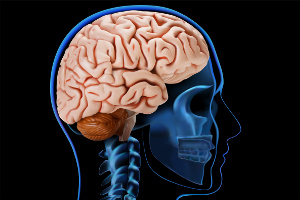 Lack of vitamin D is a global health problem that increases mortality rates. At this point, many studies have shown that having adequate amounts of vitamin D in the blood can lower your risk of cardiovascular disease, which is the leading cause of death. In a new review article that is published in Nutrients, the authors look closer at vitamin D supplementation to see if it can prevent stroke and speed up rehabilitation. It is essential that vitamin D supplements have good bioavailability so they can optimize blood levels of the nutrient.
Lack of vitamin D is a global health problem that increases mortality rates. At this point, many studies have shown that having adequate amounts of vitamin D in the blood can lower your risk of cardiovascular disease, which is the leading cause of death. In a new review article that is published in Nutrients, the authors look closer at vitamin D supplementation to see if it can prevent stroke and speed up rehabilitation. It is essential that vitamin D supplements have good bioavailability so they can optimize blood levels of the nutrient.
 We have relatively large quantities of zinc in our central nervous system where it plays a vital role in various physiological and pathological processes. Zinc is also important for brain development, various gene activities, the formation of new neurons, and the immune defense. What is more, zinc is a vital antioxidant that protects the brain against calcification and cell damage caused by oxidative stress. Zinc deficiency is a global problem and may be involved in a number of different neurological diseases – including stroke, cognitive impairment, Alzheimer’s disease, and depression, according to a new review article that is published in Biomolecules.
We have relatively large quantities of zinc in our central nervous system where it plays a vital role in various physiological and pathological processes. Zinc is also important for brain development, various gene activities, the formation of new neurons, and the immune defense. What is more, zinc is a vital antioxidant that protects the brain against calcification and cell damage caused by oxidative stress. Zinc deficiency is a global problem and may be involved in a number of different neurological diseases – including stroke, cognitive impairment, Alzheimer’s disease, and depression, according to a new review article that is published in Biomolecules.
 The number of older people is constantly increasing, and more and more people suffer from Alzheimer’s disease and other types of dementia. Apparently, seniors who take a daily multivitamin can improve their memory and slow down their cognitive decline, according to a meta-analysis that is published in Journal of Clinical Nutrition. Older people generally have increased need for certain vitamins and minerals because of poor nutrient absorption in the digestive system, impaired enzyme functions, oxidative stress, and regular use of medical drugs that can interact with the nutrients. But how do different vitamins and minerals affect brain health?
The number of older people is constantly increasing, and more and more people suffer from Alzheimer’s disease and other types of dementia. Apparently, seniors who take a daily multivitamin can improve their memory and slow down their cognitive decline, according to a meta-analysis that is published in Journal of Clinical Nutrition. Older people generally have increased need for certain vitamins and minerals because of poor nutrient absorption in the digestive system, impaired enzyme functions, oxidative stress, and regular use of medical drugs that can interact with the nutrients. But how do different vitamins and minerals affect brain health?











 It is commonly known that oily fish and fish oil supplements contain the two omega-3 fatty acids EPA and DHA that are good for the brain. Now, scientists from Singapore have discovered a special omega-3 fatty acid that is of particular importance to brain cells that are surrounded by a protective myeline sheath. The scientists say that their discovery may help prevent brain ageing and lead to the development of new therapies aimed at treating neurological disorders like sclerosis that are associated with myelin damage. Their new study is published in Journal of Clinical Investigation and it appears that fish roe is the best source of these special omega-3 fatty acids that are needed to stimulate the myeline sheath.
It is commonly known that oily fish and fish oil supplements contain the two omega-3 fatty acids EPA and DHA that are good for the brain. Now, scientists from Singapore have discovered a special omega-3 fatty acid that is of particular importance to brain cells that are surrounded by a protective myeline sheath. The scientists say that their discovery may help prevent brain ageing and lead to the development of new therapies aimed at treating neurological disorders like sclerosis that are associated with myelin damage. Their new study is published in Journal of Clinical Investigation and it appears that fish roe is the best source of these special omega-3 fatty acids that are needed to stimulate the myeline sheath. Apparently so. According to a new study published in the journal Alzheimer’s and Dementia, older people who take a daily multivitamin supplement for several years are far less likely to develop dementia, Alzheimer’s disease, and other types of cognitive decline. The new study supports earlier research where it has been seen that the different vitamins and minerals increase cerebral blood flow and protect neurons. It pays off to choose high-quality supplements to make sure that the nutrients are properly absorbed in the body.
Apparently so. According to a new study published in the journal Alzheimer’s and Dementia, older people who take a daily multivitamin supplement for several years are far less likely to develop dementia, Alzheimer’s disease, and other types of cognitive decline. The new study supports earlier research where it has been seen that the different vitamins and minerals increase cerebral blood flow and protect neurons. It pays off to choose high-quality supplements to make sure that the nutrients are properly absorbed in the body.
 There is a link between depression, dementia and Alzheimer’s disease. Also, it appears that chronic stress contributes to oxidative stress and brain cell damage. In a review article that is published in the science journal Antioxidants, researchers look closer at how oxidative stress affects the brain. They also study how antioxidants can be included in the prevention and treatment of Alzheimer’s disease, and why the most promising results are seen with selenium, Q10, melatonin, vitamin E, turmeric, and polyphenols. With regard to depression, selenium, zinc, vitamin E, turmeric, and saffron have demonstrated the greatest potential.
There is a link between depression, dementia and Alzheimer’s disease. Also, it appears that chronic stress contributes to oxidative stress and brain cell damage. In a review article that is published in the science journal Antioxidants, researchers look closer at how oxidative stress affects the brain. They also study how antioxidants can be included in the prevention and treatment of Alzheimer’s disease, and why the most promising results are seen with selenium, Q10, melatonin, vitamin E, turmeric, and polyphenols. With regard to depression, selenium, zinc, vitamin E, turmeric, and saffron have demonstrated the greatest potential. Oily fish and fish oil have a high content of the two omega-3 fatty acids, EPA (eicosapentaenoic acid) and DHA (docosahexaenoic acid), that are important for our brain, nervous system, intelligence, and mental health. Modern diets, however, are to blame for our lack of
Oily fish and fish oil have a high content of the two omega-3 fatty acids, EPA (eicosapentaenoic acid) and DHA (docosahexaenoic acid), that are important for our brain, nervous system, intelligence, and mental health. Modern diets, however, are to blame for our lack of  Neuroplasticity refers to the brain ability of brain cells to carry out structural and functional changes that are of vital importance to our development and health. It has been shown that neuroplasticity is impaired in connection with various diseases of the central nervous system, including such conditions as depression and dementia. In a review article that is published in Brain Plasticity, scientists have looked closer at how exercise, the Mediterranean diet, and nutrients like
Neuroplasticity refers to the brain ability of brain cells to carry out structural and functional changes that are of vital importance to our development and health. It has been shown that neuroplasticity is impaired in connection with various diseases of the central nervous system, including such conditions as depression and dementia. In a review article that is published in Brain Plasticity, scientists have looked closer at how exercise, the Mediterranean diet, and nutrients like  Fish oil contains EPA and DHA, two omega-3 fatty acids with a number of different functions in the brain and nervous system. It appears that middle-aged people who consume more oily fish or who take fish oil supplements have improvements in their brain structure and cognitive skills. This was shown in a study that is published in Neurology. The study results are quite interesting because cognitive decline and dementia are increasing problems that affect millions of people worldwide. The study supports previous research where it was seen that having higher concentrations of DHA in the red blood cell can reduce the risk of Alzheimer’s disease by 50 percent.
Fish oil contains EPA and DHA, two omega-3 fatty acids with a number of different functions in the brain and nervous system. It appears that middle-aged people who consume more oily fish or who take fish oil supplements have improvements in their brain structure and cognitive skills. This was shown in a study that is published in Neurology. The study results are quite interesting because cognitive decline and dementia are increasing problems that affect millions of people worldwide. The study supports previous research where it was seen that having higher concentrations of DHA in the red blood cell can reduce the risk of Alzheimer’s disease by 50 percent.
 Brain cells (neurons) contain comparatively large concentrations of
Brain cells (neurons) contain comparatively large concentrations of  The number of older people is on the rise, and so is the number of people who suffer from dementia and die as a result of this condition. If you increase your dietary intake of
The number of older people is on the rise, and so is the number of people who suffer from dementia and die as a result of this condition. If you increase your dietary intake of  Ageing is characterized by increased physical and mental frailty that reduces one’s ability to deal with various external stress factors.
Ageing is characterized by increased physical and mental frailty that reduces one’s ability to deal with various external stress factors.  There seems to be a relation between ageing, Alzheimer’s disease, and the widespread problems with selenium deficiency. According to a new study that is published in Antioxidants, scientist have revealed how different selenium-containing proteins can affect pathological processes in the brain that are known to cause Alzheimer’s disease. They believe
There seems to be a relation between ageing, Alzheimer’s disease, and the widespread problems with selenium deficiency. According to a new study that is published in Antioxidants, scientist have revealed how different selenium-containing proteins can affect pathological processes in the brain that are known to cause Alzheimer’s disease. They believe  Glioblastoma is a the most common type of brain tumor and is very aggressive. Existing therapies are not all that effective and most people die within a few years after being diagnosed with the disease. It is essential to have more focus on prevention, and diet plays a major role. According to a Chinese population study,
Glioblastoma is a the most common type of brain tumor and is very aggressive. Existing therapies are not all that effective and most people die within a few years after being diagnosed with the disease. It is essential to have more focus on prevention, and diet plays a major role. According to a Chinese population study,  Alzheimer’s is a growing health burden worldwide, and diet appears to play a major role. A large meta-analysis published in Frontiers in Aging Neuroscience recently revealed that patients with Alzheimer’s disease have lower levels of
Alzheimer’s is a growing health burden worldwide, and diet appears to play a major role. A large meta-analysis published in Frontiers in Aging Neuroscience recently revealed that patients with Alzheimer’s disease have lower levels of  Neurologists agree that the brain’s neurons constantly change in relation to stimuli from the inside and outside environment. That is how we learn new skills and develop our memory. The brain’s ability to adapt and change is called neuroplasticity and doctors have suspected for a long time that it takes place in the synapses. A team of scientists from the University of Freiburg in Germany has discovered that a vitamin A-like compound affects the neurons and their ability to adapt to structure and function. The scientists hope that their discovery can contribute to the development of new therapies for treating brain disorders. Earlier studies have shown that omega-3 fatty acids, vitamin D, and lifestyle in general also affect the brain’s neuroplasticity and development.
Neurologists agree that the brain’s neurons constantly change in relation to stimuli from the inside and outside environment. That is how we learn new skills and develop our memory. The brain’s ability to adapt and change is called neuroplasticity and doctors have suspected for a long time that it takes place in the synapses. A team of scientists from the University of Freiburg in Germany has discovered that a vitamin A-like compound affects the neurons and their ability to adapt to structure and function. The scientists hope that their discovery can contribute to the development of new therapies for treating brain disorders. Earlier studies have shown that omega-3 fatty acids, vitamin D, and lifestyle in general also affect the brain’s neuroplasticity and development.
 During pregnancy,
During pregnancy,  Dementia is on the rise across the globe but according to a study from University of South Australia,
Dementia is on the rise across the globe but according to a study from University of South Australia,  Lack of
Lack of  We have relatively large quantities of
We have relatively large quantities of  "After about one week of taking the Q10 supplement I could feel a huge difference," says 23-year old Alan Piccini, who has been suffering from extreme fatigue and muscle aches ever since he was a child.
"After about one week of taking the Q10 supplement I could feel a huge difference," says 23-year old Alan Piccini, who has been suffering from extreme fatigue and muscle aches ever since he was a child. “Taking capsules with co-enzyme Q10 has freed me of the severe side effects of my cholesterol lowering medicine,” Mrs Franken explains.
“Taking capsules with co-enzyme Q10 has freed me of the severe side effects of my cholesterol lowering medicine,” Mrs Franken explains.